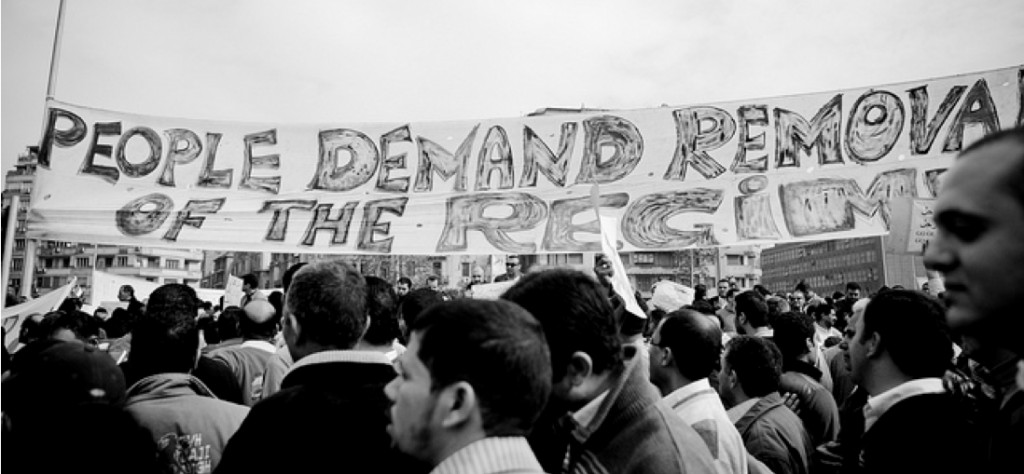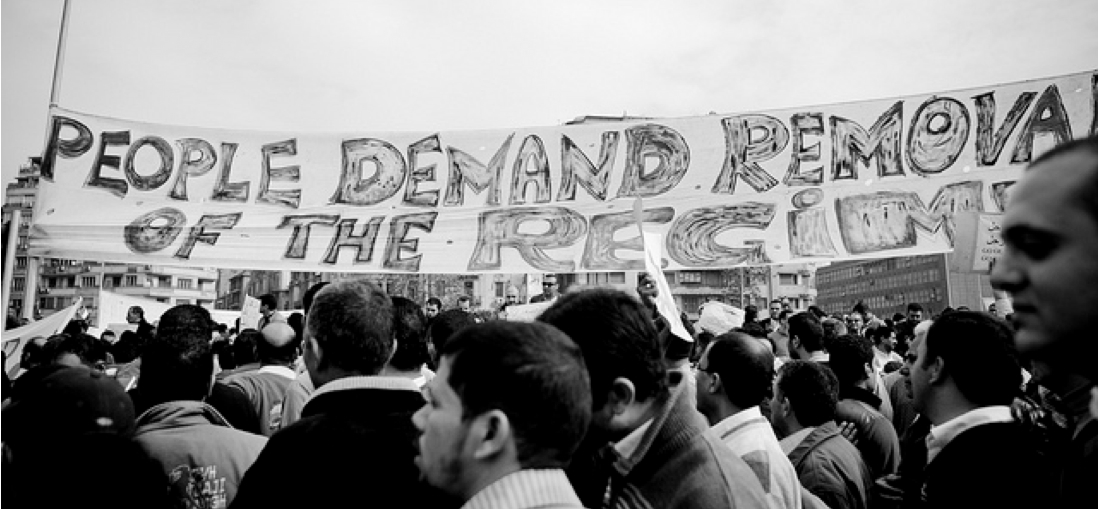 The Military Tribunals are locking up activists and the constitutional reform process is taking place under the watchful eyes of the Supreme Council of the Armed Forces. It would appear that the democracy movement has transformed Egyptian politics but not (yet) the institutions of rule.
The Military Tribunals are locking up activists and the constitutional reform process is taking place under the watchful eyes of the Supreme Council of the Armed Forces. It would appear that the democracy movement has transformed Egyptian politics but not (yet) the institutions of rule.
National and international human rights organisations – and much of the blogotwittersphere – cried foul this week over news that activist Amr Abdallah ElBihiry was arrested at a peacefule sit in, beaten and – within a week – sentenced to five years imprisonment by a Military Tribunal. Calls for his release and an end to the use of Military Tribunals have been loud and will hopefully get louder.
(see the RSS feeds from HRW and AI on the right)
For the movement, the arrests and detentions of activists is a test of the gains made in recent weeks. Is there or is there not political space for change in Egypt? In an entirely different place, the criminalization of human rights activists in Kyrgyzstan after last year’s toppling of the president is a good example of the abuse of law in the defense of power.
Consolidating the progress made in Egypt (and for that matter Tunisia) means institutionalizing the gains made…and doing that will require going beyond the peace and love postures of Tahrir. As central as the rainbow character of the protests was to its success, the boring yet vital work putting the rules and institutions in place will go nowhere if it is not backed up grassroots mobilization. Translation: mobilize, yes, but make sure the organization is in place to take the demands of the street to the reform table. And get a lawyer. April 6 has clearly figured that out.
Something of this comes through in a useful electronic round-table organized by Jadaliyya about the politics of revolution and law reform in post-Mubarak Egypt, moderated by Lisa Hajjar, University of California, Santa Barbara. If you can decipher the American anthropological-speak, the discussion is well worth the read for those interested in the relevance of constitutional reform in the present struggles. The discussion participants include:
Asli Bâli is Acting Professor of Law at the UCLA School of Law, where she teaches international law include comparative law of the Middle East.
Samera Esmeir is Assistant Professor in the Department of Rhetoric at the University of California – Berkeley. She works on war, violence and legal history in the Middle East, and is completing a book titled “Losing the Human: The Rise of Juridical Humanity in Colonial Egypt.”
Hussein Ali Agrama is Assistant Professor of anthropology at the University of Chicago. His research focuses on anthropology of law, religion, Islam and the Middle East. His forthcoming book is titled “Questioning Secularism: Islam at Law in Modern Egypt.”
Tamir Moustafa is Associate Professor and Stephen Jarislowsky Chair at Simon Fraser University, Canada. He is the author of The Struggle for Constitutional Power: Law Politics, and Economic Development in Egypt (Cambridge University Press).
